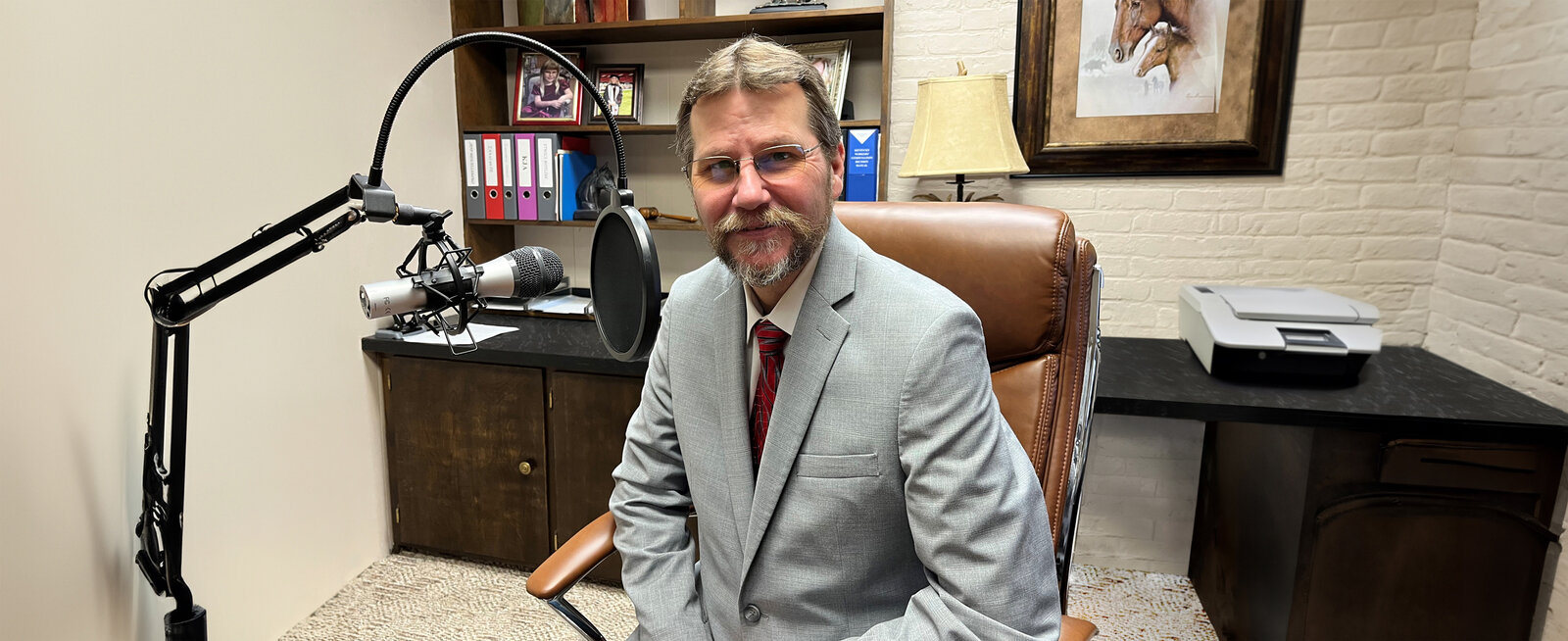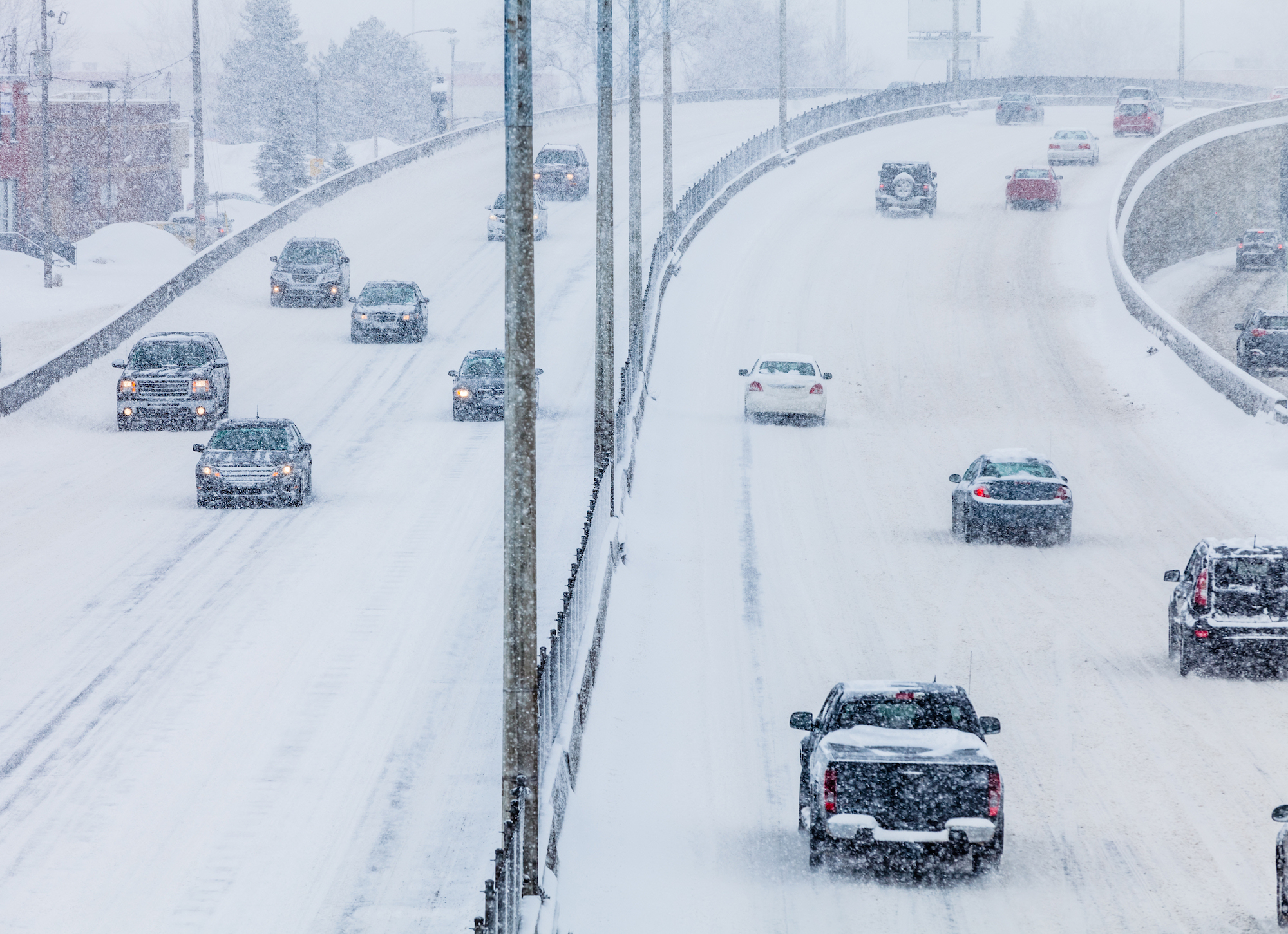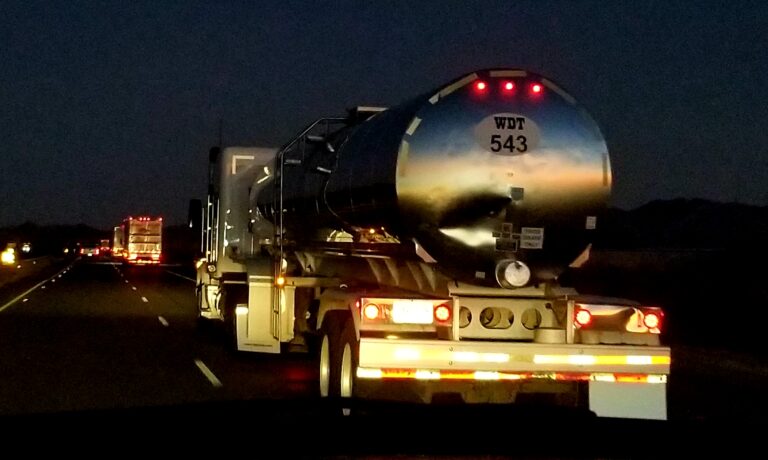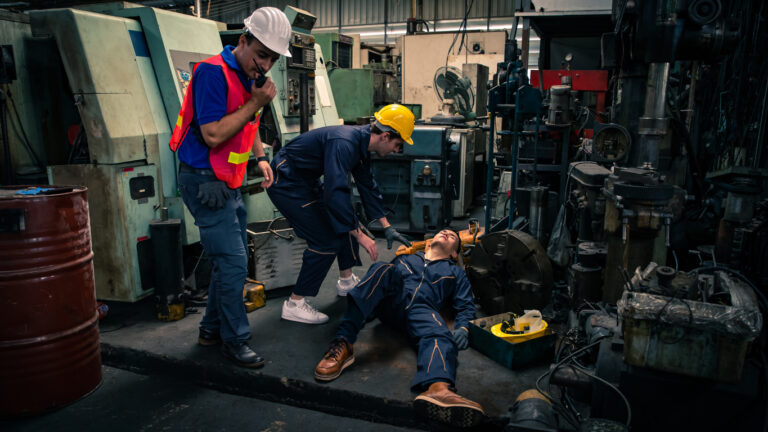Episode 91: Calloway County personal injury attorney Jeff Roberts has handled motor vehicle accidents for over 30 years throughout Western Kentucky. In this episode, Jeff provides advice for driving in bad weather conditions, based on the experience he’s seen from car wreck cases
In Episode 66, Jeff focused on avoiding traffic accidents during the holidays. As winter sets in, driving conditions change dramatically. Unfortunately, while the snow may look pretty on the trees, it will increase the risk for car wrecks when it’s on the roadways. This is even more dangerous if you’re sharing the road with tractor trailers.
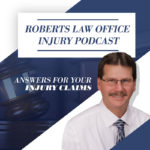
Do You Have Young Drivers at Home?
Jeff recalls how he took the time to ensure his daughter had time behind the wheel when the early snow began. He wanted to coach her on defensive driving during the winter. Stopping distances, speed, and other considerations are significantly important to understand in snow and icy conditions. It’s also a good time to develop the practice of turning on your headlights when it’s snowing. This ensures the other cars can better see your vehicle.
One of the most important advice for driving in bad weather is to remember to slow down. It’s okay if other drivers decide to pass you. It’s better to arrive a few minutes late, than to go faster than you should and possibly not arrive at all.
In Episode 80, Jeff discussed tractor trailer accident factors. The data indicates the need to increase the distance between you and the vehicle in front of you. This is especially important in icy conditions. Jeff reminds people that while most of the road may be clear, if there’s a shaded area, the snow or ice may not have melted in that area. Black ice is a serious risk on the road.
Seatbelts save lives. This is good advice, regardless of the weather conditions. Sadly, far too many drivers still neglect this practice. If you have young drivers, help them to understand the importance of wearing a seatbelt regardless of whether they are driving or riding as a passenger.
It’s a good time to check the tread on your tires. Tires that don’t have a lot of tread left can be extremely dangerous in the snow and ice. If you need to replace them, this is a good time to do so. At the same time, the cold air may have compressed the air in your tires. If they look low, check your tire pressure and get some air if needed.
Take Time to Scrape Your Windows
Jeff comments about the importance of maintaining good visibility. A simple piece of advice for driving in bad weather is to make sure you’re completely scraped your windows. When the snow if falling, your visibility will be more limited. Avoid the temptation of just scraping part of the windshield, or skipping some of the windows. Yes, it’s cold outside, but you need to have good visibility to help you to avoid a collision at an intersection, when changing lanes or while turning. Ice on your car’s windows increases the likelihood of a wreck.
Make sure you have an ice scraper in an easily accessible place inside your car. Your windows might be clear when you leave in the morning. However, it could snow or sleet while you’re at work, shopping, or in class.
You might also consider keeping a jacket, blanket, toboggan and a pair of gloves in a gym bag, in the back seat. If you get stranded, it could take a while for a first-responder to arrive.
Be Mindful of Your Fuel Level
Keep plenty of gas in your tank. Consider filling up before you leave the area. If you were to slide off the road on an interstate or other roadway, it may take time a while for someone to arrive and assist you. You might need to run the heater while you’re waiting. If you fuel gauge is on empty, you might be in a dangerous situation. The same goes for a traffic jam. Yes, you may be perfectly safe, but if you’re low on fuel, you might run out before you can get to an off-ramp and fill up your tank. Planning and anticipating situations is always good advice for driving in bad weather.
While you’re at the gas station, check your wiper fluid levels. This might be a good time to top it off. When roads have been treated, your windshield is going to get covered by spray from the cars in front of you. You need to be able to safely clean your windshield to maintain good visibility. You might want to keep some extra fluid in your truck or other storage area.
Experience Handling Collisions involving 18-Wheels to No-Wheels
Over the past 30 years, Jeff has handled many different types of automobile collisions. Many have involved 18-wheelers all the way down to bicycle and pedestrian accidents. These types of collisions often result in injuries. Some accident-related injuries can be extremely serious, and even resulting in traffic fatalities.
The risk of being in a car wreck greatly increase during the winter. It’s one of the main reasons Jeff tries to offer tips and advice for driving in bad weather. He wants you to arrive home, or to your other destination, safely.
No Upfront Costs to Hire Jeff Roberts
In Episode 56, Jeff explained what a contingency fee is and how it enables anyone to hire an injury attorney, without paying upfront costs. While some firms have increased their contingency fee to 40%, but Jeff maintains his one-third (33.3%) rate for personal injury cases. Jeff also advances the cost of case expenses and court costs. His attorney fee, and these related expenses are deducted from the settlement or jury verdict at the end of the case. In the event that he doesn’t win your case, he doesn’t pass along those costs and expenses, nor would he collect his attorney fee.
Seek Medical Treatment after an Automobile Accident
When someone gets into a car wreck, even a seemingly minor fender-bender, his/her adrenaline is pumping. This can mask the painful symptoms, which can show up the next day or a few days after the collision. When the pain and/or headache sets in, you should seek medical treatment. You’ll need to tell the nurse or doctor that you were involved in a traffic accident. This will be noted in your medical records, which can be extremely valuable to your case.
However, if you were to wait a couple of weeks to seek treatment, it may be more difficult to definitively prove your injury is related to the wreck. The insurance company may try to blame it on something other than the accident.
You Automatically Have Insurance to Pay for Your Medical Bills Related to the Accident
In most cases, a driver and each passenger will automatically be covered by Personal Injury Protection benefits (“PIP”). This is part of Kentucky’s no-fault insurance law. Jeff discussed this coverage in Episode 56.
PIP benefits provide up to $10,000 or more for your accident-related injuries, lost wages and other damages. Each person in the vehicle has their own coverage, so PIP is not divided among them. PIP is paid regardless of which driver was at-fault. This is why it’s commonly referred to as no-fault benefits.
If you were driving without insurance, at the time of the collision, you would not qualify for PIP, but each of your passengers will be covered. If you use PIP benefits, the insurance companies are prevented, by law, from raising your premiums because you used PIP coverage.
What Do Other Clients Think About Jeff?
We always encourage listeners to read the Google Reviews Jeff Roberts has received from many of his clients. A 5-Star rating and the comments are earned recognition and demonstrate Jeff’s commitment to his clients. As a solo attorney, he has more Google Reviews than some firms with multiple attorneys. Jeff shares the credit with his staff at the Roberts Law Office. Successfully representing injured clients is a team effort. It’s why Jeff likes to say his firm offers small town service with big city results.
Jeff Roberts Represents Injured Clients Throughout Kentucky
With offices located in Calloway County (Murray) and now in Christian County (Hopkinsville), Jeff has a history of representing personal injury clients, workers’ compensation clients and social security disability clients across the state. He’s represented clients from Paducah, Bowling Green, Louisville, Covington, Whitesville and many other Kentucky locations. He’s not just a Western Kentucky injury attorney.
We hope you found this episode insightful and helpful. Thank you for listening!
Is It Time to Speak with an Attorney about Your Workers’ Compensation Claim?
The office phone number is (270) 753-0053 or toll free at 800-844-5108. For more information, visit www.JeffRobertsLaw.com. This podcast is meant to provide information and is not legal advice. Jeff’s principal office is located at 509 Main Street, Murray, Kentucky. Co-host Jim Ray is a non-attorney spokesperson. This is an advertisement.

